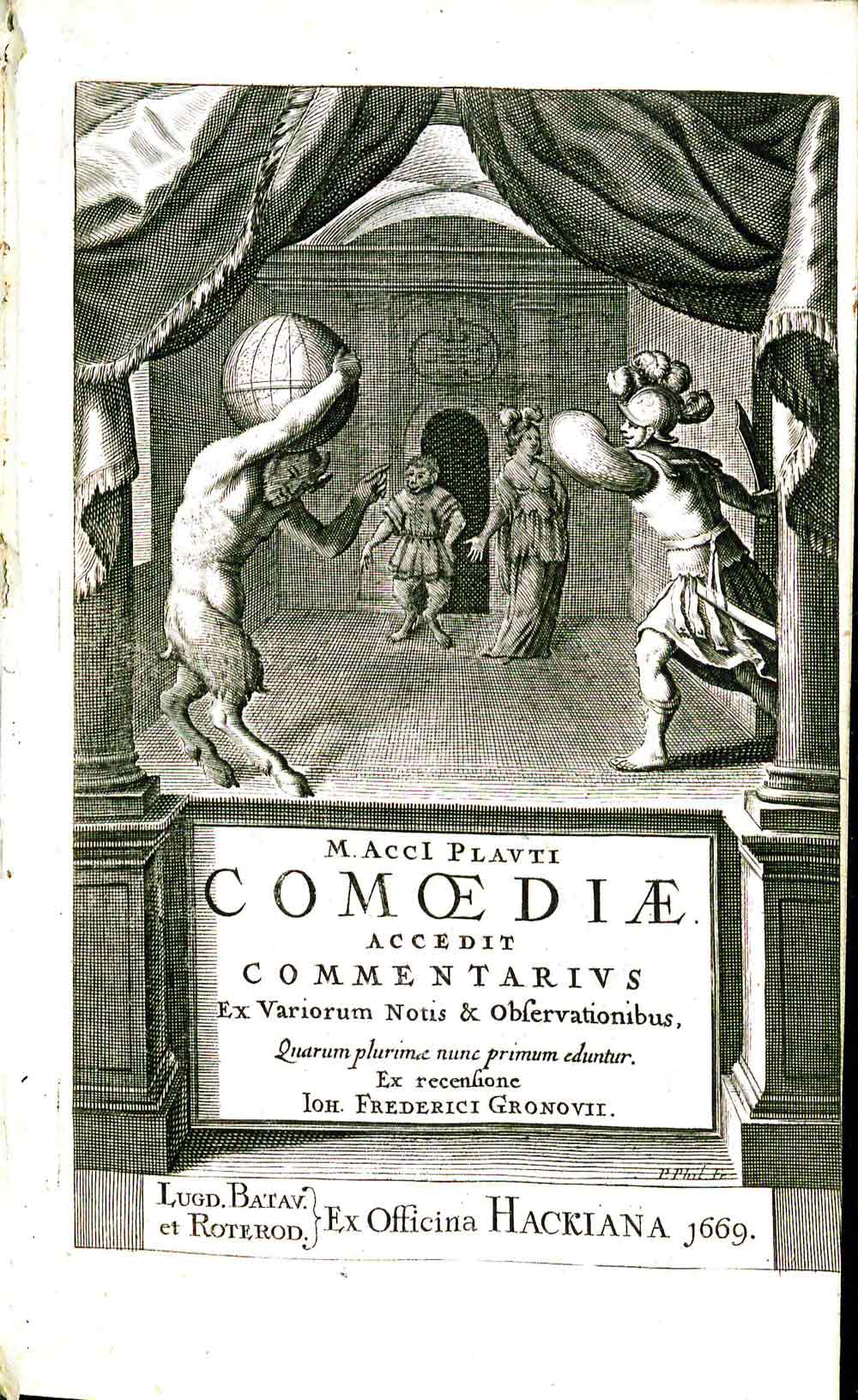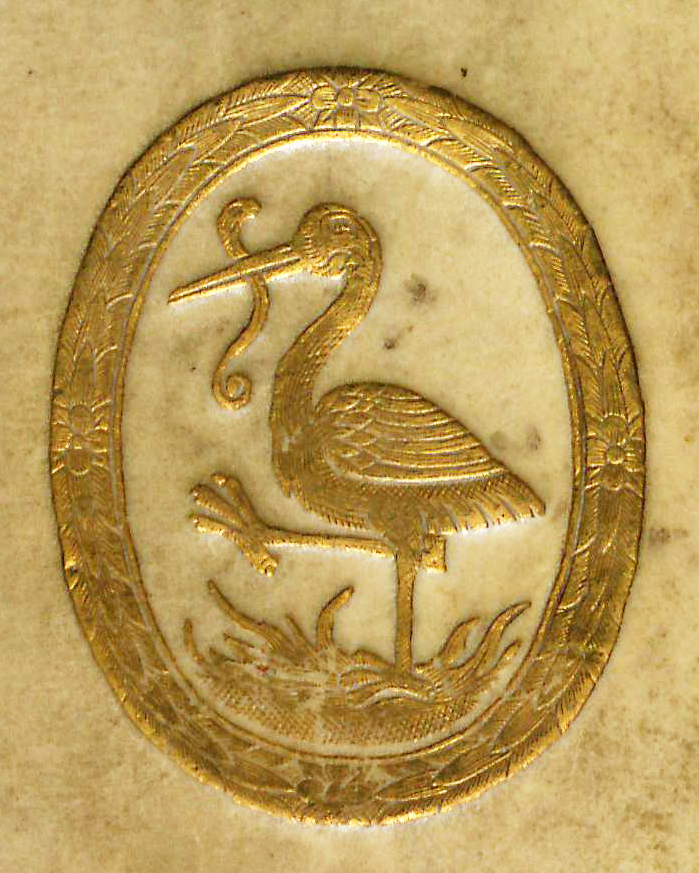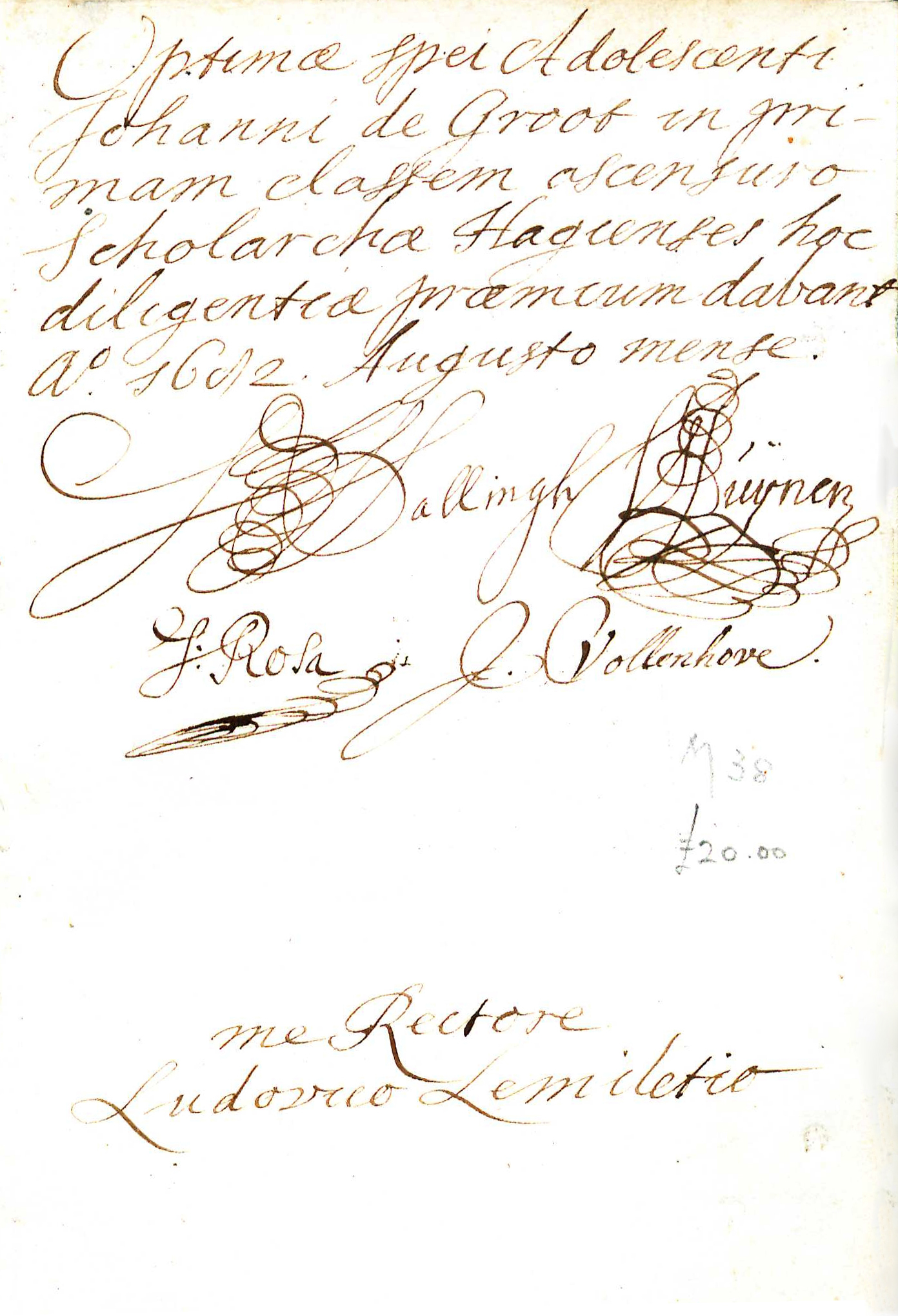Difference between revisions of "M. Acci Plauti Comoediae"
Dbthompson (talk | contribs) (→Evidence for Inclusion in Wythe's Library) |
|||
| Line 23: | Line 23: | ||
==Evidence for Inclusion in Wythe's Library== | ==Evidence for Inclusion in Wythe's Library== | ||
| − | Listed in the [[Jefferson Inventory]] of [[Wythe's Library]] as "[Plautus] notis varior. 2.v. 8vo." This was one of the books kept by [[Thomas Jefferson]]. He later sold a copy to the Library of Congress in 1815, but it no longer exists to verify the edition or Wythe's prior ownership.<ref>E. Millicent Sowerby, ''Catalogue of the Library of Thomas Jefferson'' | + | Listed in the [[Jefferson Inventory]] of [[Wythe's Library]] as "[Plautus] notis varior. 2.v. 8vo." This was one of the books kept by [[Thomas Jefferson]]. He later sold a copy to the Library of Congress in 1815, but it no longer exists to verify the edition or Wythe's prior ownership.<ref>E. Millicent Sowerby, ''Catalogue of the Library of Thomas Jefferson'' (Washington, D.C.: The Library of Congress, 1952-1959), 4:547 [http://babel.hathitrust.org/cgi/pt?id=mdp.39015033648125;view=1up;seq=567 (no.4571)].</ref> The [https://digitalarchive.wm.edu/handle/10288/13433 Brown Bibliography]<ref> Bennie Brown, "The Library of George Wythe of Williamsburg and Richmond," (unpublished manuscript, May, 2012) Microsoft Word file. Earlier edition available at: https://digitalarchive.wm.edu/handle/10288/13433</ref> and [http://www.librarything.com/profile/GeorgeWythe George Wythe's Library]<ref>''LibraryThing'', s. v. [http://www.librarything.com/profile/GeorgeWythe "Member: George Wythe"], accessed February 27, 2014.</ref> on LibraryThing include the 1669 edition of ''M. Acci Plauti Comoediae'' published in Leiden based on E. Millicent Sowerby's inclusion of that edition in ''Catalogue of the Library of Thomas Jefferson''. The Wolf Law Library purchased a copy of the same edition. |
[[File:PlautusAcciPlavtiComoediae1669Inscriptions.jpg|left|thumb|250px|<center>Inscriptions, front free endpaper.</center>]] | [[File:PlautusAcciPlavtiComoediae1669Inscriptions.jpg|left|thumb|250px|<center>Inscriptions, front free endpaper.</center>]] | ||
| + | |||
==Description of the Wolf Law Library's copy== | ==Description of the Wolf Law Library's copy== | ||
Bound in contemporary vellum with gilt tooling and gilt centerpieces showing stork and eel on front and back cover. Has fleur-de-lys tooling in corners and on spine. Front free endpaper includes Latin inscription and signatures. Purchased from Butigenus Bookcase. | Bound in contemporary vellum with gilt tooling and gilt centerpieces showing stork and eel on front and back cover. Has fleur-de-lys tooling in corners and on spine. Front free endpaper includes Latin inscription and signatures. Purchased from Butigenus Bookcase. | ||
Revision as of 12:03, 20 January 2016
by Titus Maccius Plautus
| M. Acci Plauti Comoediae | |
|
Title page from M. Acci Plauti Comoediae, George Wythe Collection, Wolf Law Library, College of William & Mary. | |
| Author | Titus Maccius Plautus |
| Editor | Joannes Fredericus Gronovius |
| Published | Lugd. Batav.: Roterod.: Ex Officina Hackiana |
| Date | 1669 |
| Language | Latin |
| Volumes | 2 volumes in 1 volume set |
| Desc. | 8vo (21 cm.) |
| Location | Shelf J-4 |
Plautus freely and generously adapted Greek New Comedy, now lost, to represent and exaggerate Greek life and character. He combined Roman stereotypical views of Greeks with extensive word-play and over-the-top humor in his plays which utilized more song and recitation—about two-thirds of the total play composition—than most Roman plays, which contained mostly dialogue. In doing this, Plautus essentially wrote musical comedy.
Unfortunately, the work of Plautus is the only extant Latin language—in any form—that survives from the early second century BCE. During the Renaissance, Plautus was rediscovered, widely distributed and translated throughout Europe. Henry VIII ordered the performance of two of his plays for the French ambassador in 1526, and Plautus’ influence can easily be seen throughout sixteenth-century English comedy. Shakespeare himself used the plot of the Menaechmi in The Comedy of Errors (1594).[4]
Evidence for Inclusion in Wythe's Library
Listed in the Jefferson Inventory of Wythe's Library as "[Plautus] notis varior. 2.v. 8vo." This was one of the books kept by Thomas Jefferson. He later sold a copy to the Library of Congress in 1815, but it no longer exists to verify the edition or Wythe's prior ownership.[5] The Brown Bibliography[6] and George Wythe's Library[7] on LibraryThing include the 1669 edition of M. Acci Plauti Comoediae published in Leiden based on E. Millicent Sowerby's inclusion of that edition in Catalogue of the Library of Thomas Jefferson. The Wolf Law Library purchased a copy of the same edition.
Description of the Wolf Law Library's copy
Bound in contemporary vellum with gilt tooling and gilt centerpieces showing stork and eel on front and back cover. Has fleur-de-lys tooling in corners and on spine. Front free endpaper includes Latin inscription and signatures. Purchased from Butigenus Bookcase.
Images of the library's copy of this book are available on Flickr.


